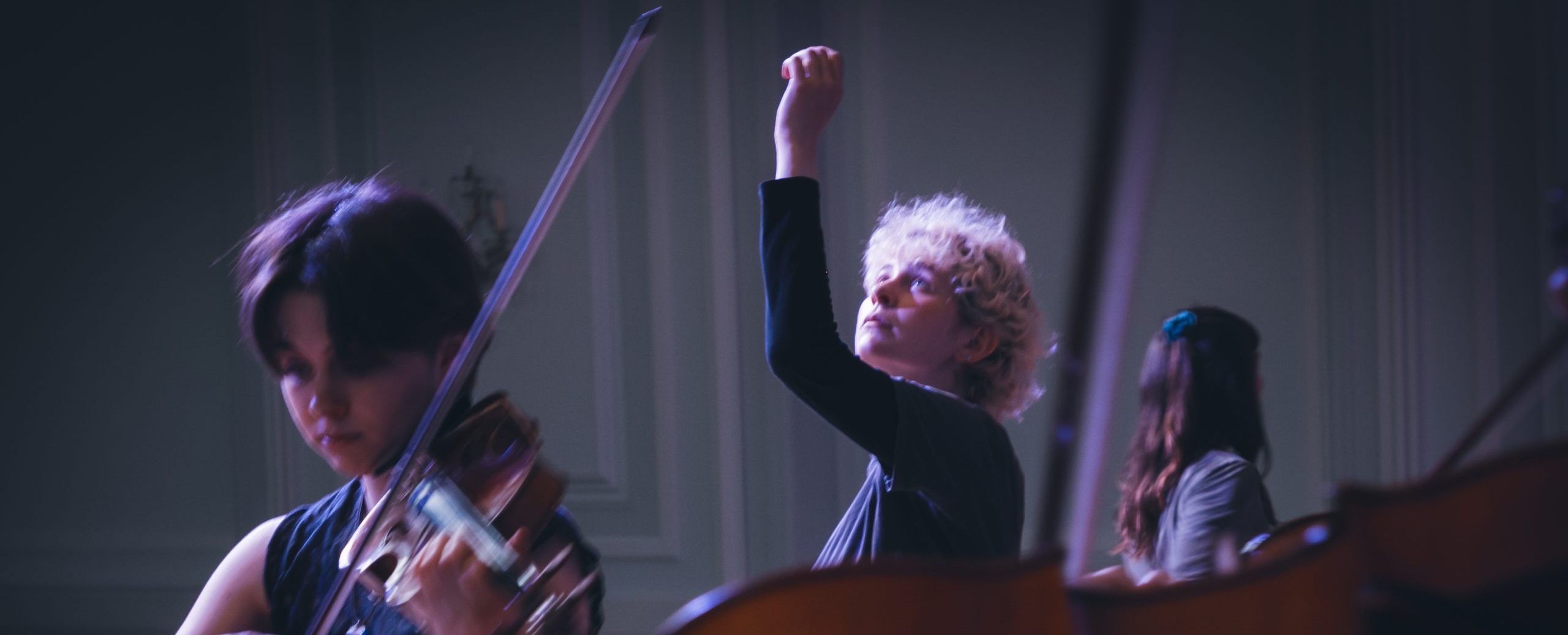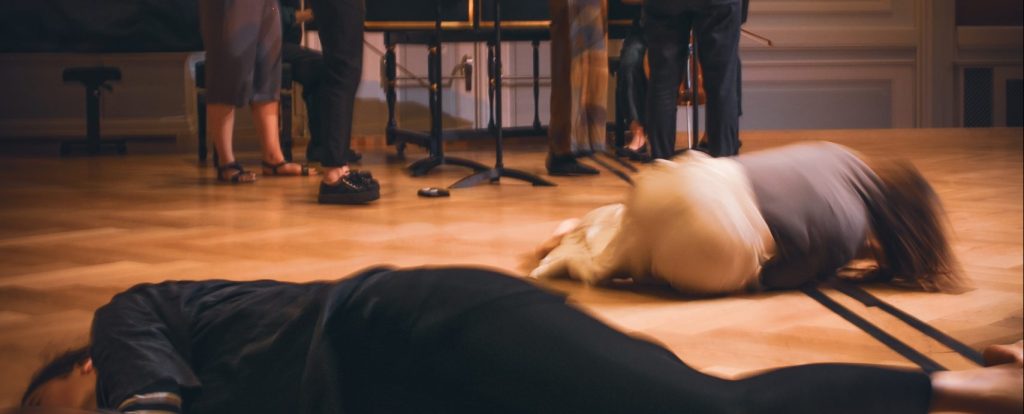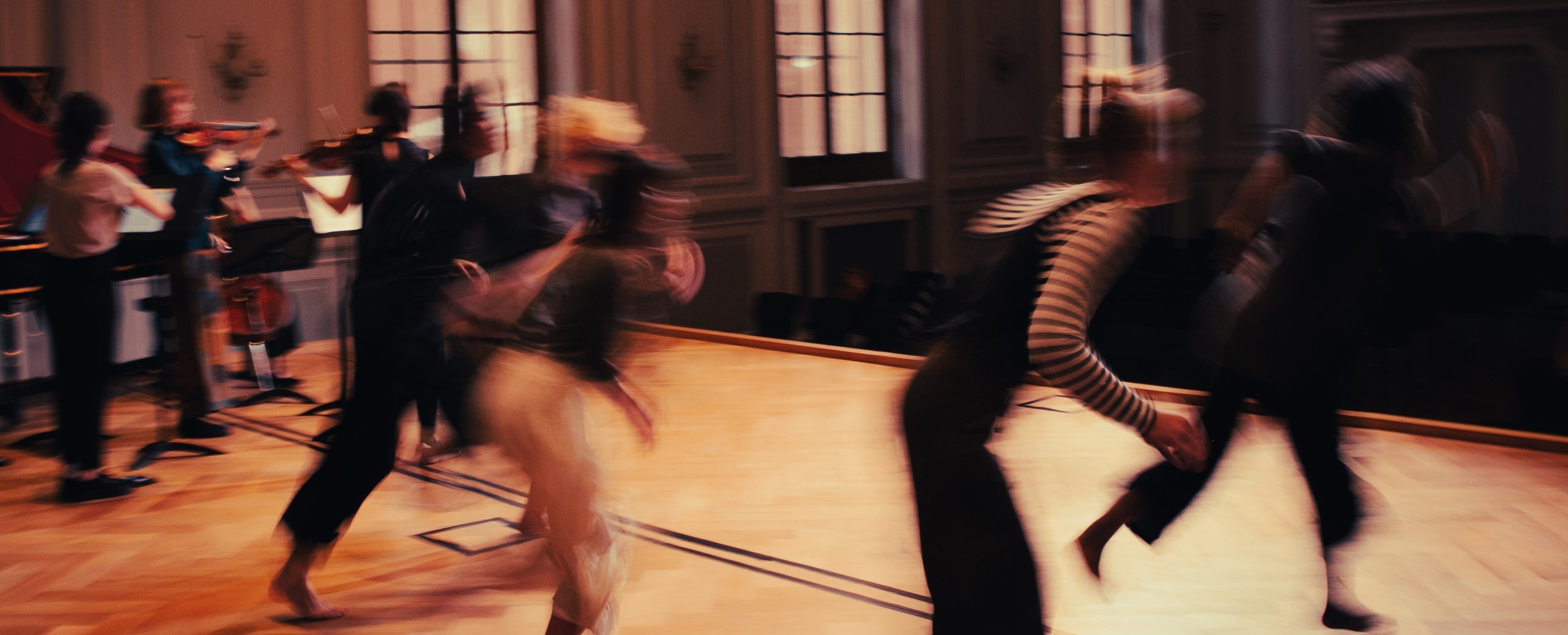News on further education:
4th Further Education Day on September 28 2024, 10 a.m. – 5 p.m., Campus Music-Academy:
Program
- 10:00 a.m. Start
- 10:00 – 10:50 a.m. Keynote speech with interaction, Christof Arn
- Shaping exam situations together
- 10:50 – 11:05 a.m. Warm up with voice and body, Martin Wettges
- 11:05 – 11:20 a.m. Presentation of the 3 workshops by Martin Wolf, Lisa Stepf, Christof Arn
- 11:20 – 12:00 a.m. Coffee break with croissants
- 12:00 – 16:20 p.m. Four parallel workshops
- Mental strength – burnout prevention, Martin Wolf
- Collective feedback, Lisa Stepf
- Practical application of AI tools in everyday working life, Sarah Platte
- Agile audits, Christof Arn
- 16:20 – 17:00 p.m. Aperitif riche
- 17:00 p.m. End
Registration for the workshops is possible from May 2024 via ASIMUT.
Keynote speech with interaction
Designing exam situations together
Prof. Dr. Dr. Christof Arn
10:00 – 10:50 a.m., Neuer Saal
Every audition is a kind of interim evaluation, even in individual lessons. In theory lessons, tests during the semester can also help students to perceive their own learning status. Such informal, formative tests enable transparency and autonomy on the way to formal final exams as part of successful exam preparation.
Up to now, we teachers have probably seen ourselves as alone in the task of designing all these examination situations. The term “peer grading” is now associated with the idea of involving students to a significant extent:
- How can I find out where I stand?
- What is the essence of a particular stage of training?
- How can the final examination be designed in such a way that it reflects the desired competencies as well as possible – with which criteria, processes, etc.?
If we involve students in the design of examination situations in an appropriate and flexible way, they will gain confidence and self-efficacy – and not just in examination situations.
If we teachers work with our students in this way, our role changes – to some extent. A new mastery for ourselves appears on the horizon.
https://www.agiledidaktik.ch/kontakt.html
Warm Up with voice and body
10:50 – 11:05 a.m., Neuer Saal
Martin Wettges
Presentation of the 3 workshops by Martin Wolf, Lisa Stepf & Christof Arn
11:05 – 11:20 a.m., Neuer Saal
The workshops
Mental strength – burnout prevention
Martin Wolf
12:00 – 16:20 p.m., Vortragssaal 6 – 301
There are very effective biohacks for modern stress management. Consciously influencing pressure and stress situations is easy to learn – but it takes time to “master” them. In this workshop, I will show you the basics for strengthening your resilience, health and creativity in relation to your internal and external stressors and pressure situations.
A basic understanding of the neurophysiological and hormonal mechanisms of stress and recovery functions in the body forms the basis for learning effective strategies for dealing with stress in a healthy way. The result is not only resilience and health, but also the positive use of the greatest creative power in our body.
Course content:
- Asking participants about their biggest challenges in coping with stress
- The stress-relevant map of the brain and body
- Levels of effective influence for coping with stress
- Getting to know effective biohacks – miracle cures that need to be practised
- Resilience 1: Discrepancy between wanting, having and being able – a symptom analysis
- Resilience 2: Long-term stress management – sleep, nutrition, thinking
- Burnout cycle: four conditions that lead to burnout
Danger recognized – danger averted? Perhaps … Stress should become our best friend, just like relaxation, because the two belong together like siblings. If we treat one wrongly, the other suffers too. If we do it right, we will grow old healthily, consciously and happily. A bore-out is just as unpleasant as a burnout, which is why “joy” is not just an emotion, but the hormonal output of optimal stress management.
Martin Wolf has been running seminars and workshops on these topics for more than 30 years. His expertise lies in combining scientific findings with Eastern approaches.
https://www.stressregeneration.ch/
Workshop
Collective feedback
Lisa Stepf
12:00 – 16:20 p.m., Klaus Linder Saal
Giving and receiving feedback is often equally difficult. Ego” and hierarchies often play a role. In the worst case, criticism can be perceived as a “personal opinion” and as an attack from which you need to protect yourself. In this workshop you will get to know a form of collective, structured feedback that reveals and supports the potential of an artistic project idea – beyond hierarchies and sensitivities. In this way, feedback can be perceived as valuable and constructive and used productively for the further artistic process.
The 10 modules of the DasArts feedback method are particularly suitable for input during the artistic work process. It was developed for interdisciplinary, performative projects, but can also be applied very well to dance, theater and scenic-musical projects.
The potential of DasArts lies in the combination of the equally elaborate and clear module structure and the awareness of values and attitudes. In the workshop you will be able to experience these fundamental values and attitudes. There will also be an opportunity to relate them to yourself and your own practical experience.
The workshop begins with a 20-minute artistic presentation of the status of a scenic-musical project. We will then give feedback to the project participants using the method. Finally, there will be a summary of the 10 modules used and background information on the DasArts feedback method, as well as a question and discussion session.
Lisa Stepf studied Cultural Studies and Aesthetic Practice in Hildesheim, was a scholarship holder of the Körber Foundation (Masterclass on Music Education) and the EU pilot project SPACE for young curators. She lives and works as a freelance performer, cellist, curator and lecturer in Switzerland. She is part of the interdisciplinary string quartet Quartett PLUS 1 and the theater company Flinn Works. She has worked as a curator for Radialsystem V in Berlin, among others, and develops new concert formats in various contexts, including for Ensemble Resonanz, the Luxembourg Philharmonic and the Zurich Chamber Orchestra. She teaches at the Basel Academy of Music and at the Bern University of the Arts in the “Music in Context” course.
Workshop
Between risk and opportunity
Practical application of AI tools in everyday working life
Sarah Platte
12:00 – 16:20 p.m., 6 – 401
Artificial intelligence (AI) is one of the fastest growing technologies of our time and has the potential to fundamentally change the way we work, learn and communicate. AI skills will not only be an integral part of the future world of work, they can already help us today to make our everyday working lives more efficient.
AI tools offer support for a variety of teaching and administrative tasks, such as organization, scheduling, communication, application processes and concert advertising. Their use allows us to delegate time-consuming and routine tasks, leaving more time for the creative and social aspects of our work.
In this workshop, we will focus specifically on the use of AI tools in teaching and administration. We will work on the basics of AI and its possible applications in practice, such as the use of tools like ChatGPT. A special focus is placed on practical application, in particular on learning how to prompt successfully.
A prompt is a specific instruction to the AI software that is used to perform certain tasks. The art of prompting is a key skill for using AI tools effectively – the more precisely the instruction is formulated, the more relevant and accurate the AI’s response will be. In our workshop, we practise how to design and adapt effective prompts in order to use AI tools in a targeted manner.
There will be enough time to apply what you have learned in practice – please bring a laptop or tablet. In addition to the practical applications, the risks and ethical considerations that the use of AI in the working environment entails will also be discussed.
Sarah Platte has been working as a research assistant in the field of digital teaching development in music at HSM since August 2023. She advises lecturers, is the contact person for Moodle and gives workshops on digitalization topics.
Workshop
Agile audits
Prof. Dr. Dr. Christof Arn
12:00 – 16:20 p.m., Neuer Saal
If we involve students in the question of how performance, skills and personal development should be demonstrated, this means a challenging change of perspective for them. We take them to the meta-level of their learning: Which situation, task or activity makes what they have learned visible? These are questions that we otherwise ask and answer. Involving students here enables them to learn in greater depth and leads to a greater sense of meaning and identification with the examination process. It can also help to reduce exam-related anxiety.
There are already inspiring experiences and guiding concepts for dealing with this topic, which we will look at in this practice-oriented workshop.
The focus is on the topic of agile examinations. There will also be space for the basics of examinations, student-oriented behavior of examination boards and the topics of the participants. We will start with the specific concerns and experiences of the participants. Based on this, innovative tests and examination forms can be developed directly in the workshop.
https://www.agiledidaktik.ch/kontakt.html
Registration for the workshops is possible from May 2024 via ASIMUT.



